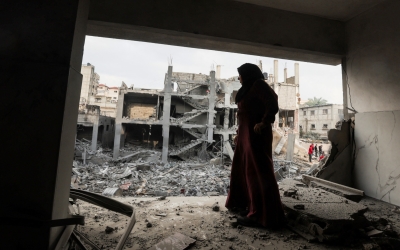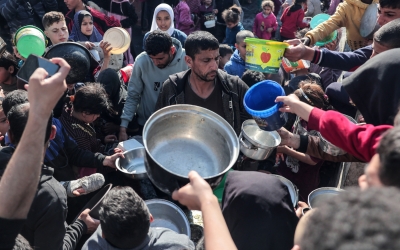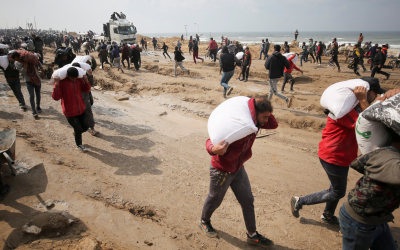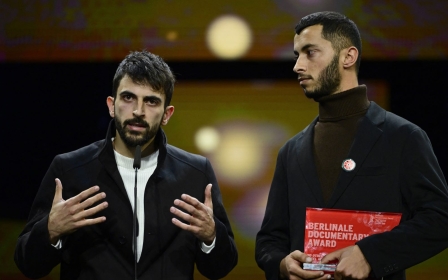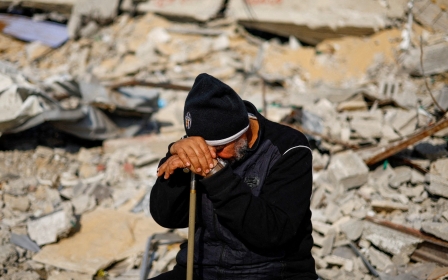How Israel defied ICJ provisional measures, one month on
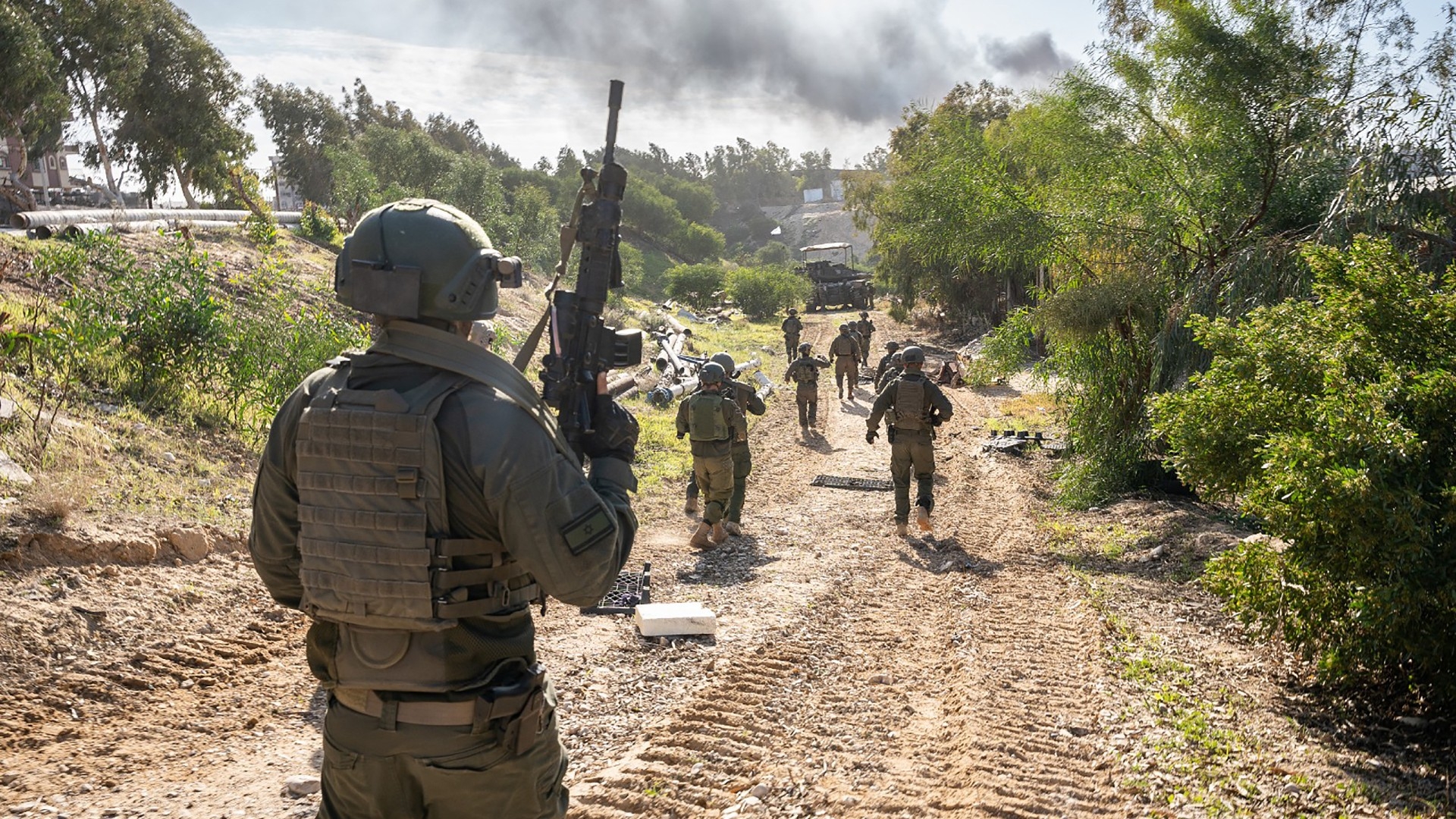
It has now been more than one month since the International Court of Justice (ICJ) delivered an interim ruling calling on Israel to take measures to prevent acts of genocide in Gaza.
The provisional measures were announced on 26 January, weeks after South Africa had taken Israel to the Hague-based court over accusation of genocide against Palestinians.
The court did not order Israel to halt its military operations in Gaza, one of South Africa's key demands. It also did not rule on whether Israel was committing genocide, and will likely not do so for some time.
However, it did rule on several provisional measures, voted for by the vast majority of the court's seventeen judges.
It ordered Israel to take measures to prevent acts that fall under Article II of the Genocide Convention, namely: killing members of a particular group, causing serious bodily or mental harm, deliberately bringing about the physical destruction of the group, and imposing measures intended to prevent births.
New MEE newsletter: Jerusalem Dispatch
Sign up to get the latest insights and analysis on Israel-Palestine, alongside Turkey Unpacked and other MEE newsletters
The court also ordered Israel to enable the provision of urgent humanitarian aid, prevent the destruction of evidence of crimes and to prevent and punish incitement to commit genocide against Palestinians.
In addition, it commanded Israel to submit a report within a month outlining all the measures it had taken to follow the ICJ's orders. Israel submitted the report earlier this week.
Over the past month, actions taken by Israel in Gaza appear to defy several of the provisional measures. Middle East Eye takes a look below.
Killing civilians in Gaza
The court instructed Israel to take all measures to prevent killing Palestinians in Gaza, as part of its obligations under the Genocide Convention.
However, Palestinian civilians were killed every day in the first two weeks following the ICJ ruling, according to an investigation by Airwars.
Between 27 January and 9 February, Airwars monitored more than 200 incidents of "harm". In 190 incidents, civilians were killed or wounded by explosive weapons, while civilians were killed or wounded by live gunfire in 36 incidents.
Among those civilians killed were healthcare workers, journalists, people waiting for humanitarian aid and those sheltering in education centres. In 13 separate incidents, 10 or more civilians were killed.
The killing of Palestinian civilians continued beyond the first two weeks since the ruling.
On 10 February, Hind Rajab, a five-year-old Palestinian girl was found dead nearly two weeks after she had been trapped in a car with her dead family and surrounded by Israeli forces.
Three days later, 67 Palestinians were killed during an Israeli assault on Rafah. The attack targeted 14 homes and three mosques, and survivors told MEE they were shot at by Israeli quadcopters while sheltering inside displacement tents.
On 14 February, Israeli troops reportedly shot dead a Palestinian man after sending him into Nasser Hospital in Khan Younis to warn others to evacuate.
A week later, 40 people were killed and more than 100 wounded after what Palestinian officials described as a "heinous massacre" in Deir al-Balah, in central Gaza. Israeli warplanes hit four homes in the area, killing mostly women and children.
On 29 February, at least 115 Palestinians were killed and hundreds more injured after Israeli forces opened fire on people waiting to collect food from an aid envoy in Gaza City.
Serious bodily and mental harm
The ICJ ruling also ordered Israel to take all measures to prevent actions that cause bodily or mental harm to Palestinians in Gaza.
In addition to Israeli attacks which have killed and wounded, there have been several reports of mental and physical harm towards Palestinians that either took place or have come to light since 26 January.
Just three days after the ICJ ruling, MEE reported that Palestinians fleeing Khan Younis through a supposedly "safe corridor" were being detained, humiliated and taken to unknown locations by Israel's military.
Eyewitnesses said civilians were searched and questioned by Israeli investigators and had their iris data recorded at a checkpoint. Some were put into trucks and taken to detention camps, where they were held in unknown conditions.
On 30 January, a video was shared on a far-right Israeli Telegram channel appearing to show Israeli soldiers coercing detained Palestinians to describe themselves as slaves.
On 4 February, a Palestinian doctor said Israeli forces subjected him to abuse during 45 days of captivity, including sleep deprivation, constant shackling and being blindfolded.
Dr Said Abdulrahman Maarouf was working at al-Ahli al-Arab Hospital in Gaza City when it was surrounded by Israeli forces in December.
He said his hands were cuffed, legs shackled and eyes masked for nearly seven-weeks of imprisonment, and that he was made to sleep on pebbles with loud music blaring. Maarouf lost 25kg during that time.
On 5 February, an undated image emerged of an Israeli soldier in Gaza City towering over a Palestinian man, who is stripped naked with his hands tied behind his back and blood pouring from a wound in his leg.
On 19 February, UN experts expressed alarm over allegations of rape, sexual assault, arbitrary detention and other "egregious human rights violations" against women and girls in Gaza and the West Bank since Israel's war began.
The independent experts said it received reports of Palestinian female detainees being subjected to "multiple forms of sexual assault", with at least two detainees reportedly raped, while others were allegedly threatened with rape and sexual violence.
There was at least one report of a woman in Gaza allegedly being held in a cage in the rain and cold, without food.
Last week, a Palestinian man detained by Israeli forces from Gaza told MEE he was physically and psychologically tortured for weeks.
Ali Hamdan was detained in December from Jabalia, north of Gaza City, after his home had been bombed in earlier air strikes, which killed his wife, daughters and son-in-law.
"For over 42 days, my hands were tied and I was blindfolded. From 5am till 11pm, we were forced to sit in a specific position, and if you didn't follow orders they beat you and put you in a stress position," he said.
"We were stripped down to our boxers in the cold, and they did not care about the sick and the elderly, including people who were aged 75 or older.”
Physical destruction and preventing birth
Israel was ordered by the ICJ to take measures to prevent deliberately inflicting conditions on Palestinians that are calculated to bring about the physical destruction of the community - in whole or in part.
In addition, it was told to avoid measures intended to prevent births in Gaza.
In the past month, international agencies and rights organisations have pointed out that several Israeli actions have led to such destructive conditions.
Just this week, the UN's leading expert on food said Israel was intentionally starving Palestinians and should consequently be held accountable for war crimes.
"There is no reason to intentionally block the passage of humanitarian aid or intentionally obliterate small-scale fishing vessels, greenhouses and orchards in Gaza - other than to deny people access to food," Michael Fakhri, the UN special rapporteur on the right to food, told the Guardian.
"Intentionally depriving people of food is clearly a war crime. Israel has announced its intention to destroy the Palestinian people, in whole or in part, simply for being Palestinian."
In recent days, two babies have died of malnutrition and dehydration in Gaza, with several rights groups accusing Israel of using starvation as a "weapon of war". Some Palestinian parents have been forced to use animal fodder to satisfy their children's hunger.
Lack of food has particularly impacted the 50,000 pregnant women in Gaza. In one central Gaza clinic, one in five pregnant women is being treated for malnourishment.
Randa Ghazy, of NGO Save the Children, told MEE this week: "Pregnant women are not receiving the nutrition and healthcare they need, making them more susceptible to disease and increasing risks of death during childbirth."
On 16 February, the UN Population Fund said that women were reportedly miscarrying at a higher rate than before the war. It attributed that to malnutrition, as well as C-sections and other surgery being carried out without anaesthesia due to lack of supplies.
Earlier this month, the World Health Organisation reported thousands of cases of respiratory infections, acute watery diarrhoea, scabies and lice, skin rashes, chickenpox and acute jaundice - all of which have increased from previous years due to the war.
Lack of clean drinking water is also a grave concern in Gaza.
Five days after the ICJ ruling, on 31 January, Israel confirmed that it had begun to flood tunnels in the Gaza Strip with seawater.
Researchers specialising in water, diplomacy and conflict told MEE that the flooding would have damaging ecological effects, including the pollution of Gaza's already devastated water supply and damage to its crops.
Israel has also targeted and surrounded hospitals over the past four weeks, effectively putting the entire health system out of service.
After Israel's bombardment and siege last year shut down al-Shifa Hospital in the north, previously the largest medical facility in Gaza, Israeli forces focused their attention on Nasser Hospital in the south, the last functioning medical complex.
Nasser Hospital has now been put it out of service after a weeks-long siege, fuel shortages and an Israeli raid in which it carried out arrests of staff members. The healthcare collapse has left wounded and sick Palestinians at imminent risk of death and disease.
Blockade on aid entering Gaza
The court ordered Israel to take immediate measures to enable urgent basic services and humanitarian assistance into Gaza.
But since the ruling, the daily average number of trucks entering the Strip has fallen.
Between 1 and 26 January, 147 trucks were entering daily, but that fell to 57 between 9 February and 21 February. Before the war, an average of 500 trucks of food and resources entered Gaza each day.
A survey of 24 aid groups operating in Gaza - after the ICJ ruling - found that delays and denials at Israeli crossing and inspection points was a key impediment to the deliveries.
On 20 February, the World Food Programme paused deliveries of lifesaving food to northern Gaza due to safety and security concerns. Aid workers have said they have effectively no presence in the north, with Israel denying access to the area since the end of a temporary pause in hostilities last year.
Just a day after the ICJ ruling, Israel alleged that a number of employees out of 30,000 at the UN refugee agency for Palestinians (Unrwa) were involved in Hamas's attack on 7 October.
Since then, 18 countries have suspended funding to the agency. Unrwa, which is the main supplier of food, water and shelter in the enclave, has said that Israeli calls for its abolition and the funding suspensions have left the agency at "breaking point".
Over the past month, aid trucks have also been blocked by Israeli protesters.
Israelis from across the political spectrum have been gathering at the Karem Abu Salem - or Kerem Shalom - crossing to stop the delivery of humanitarian aid. Many have set up tents in the area, and blocked aid entries by lying across the ground in front of trucks.
In just one day, on 6 February, the protesters blocked the delivery of 130 aid trucks entering Gaza.
Aid convoys have been attacked in Gaza, too.
A CNN investigation found that Israeli forces fired on a UN convoy in central Gaza on 5 February, before blocking its progress to northern parts of the territory.
On 27 February, at least 115 Palestinians were killed after Israel forces fired on people at an aid convoy in Gaza City’s al-Rasheed street.
Following the incident, Israeli National Security Minister Itamar Ben Gvir said Israeli forces "acted excellently against a Gazan mob that tried to harm them". He called on Israel to completely stop transferring aid to the enclave.
Incitement to commit genocide
The provisional measures instructed Israel to take measures to prevent and to punish incitement to commit genocide against Palestinians in Gaza.
During the ICJ proceedings, South Africa's legal team cited scores of examples of Israeli officials and military figures making extreme statements of incitement and dehumanising language against Palestinians.
On 28 January, two days after the preliminary ruling, Israeli ministers, politicians, rabbis and public figures attended a conference in Jerusalem calling for resettlement of Israelis in Gaza and making statements widely deemed to be genocidal.
The event, entitled "Conference for the Victory of Israel - Settlement Brings Security: Returning to the Gaza Strip and Northern Samaria", called for Palestinians to be expelled. It was attended by 11 cabinet ministers and 15 members of parliament.
Participants presented details of proposed future settlements, maps and stages of preparation. They made continuous reference to Gush Katif, a bloc of 17 illegal Israeli settlements that had previously existed in southern Gaza.
National Security Minister Ben Gvir said: "You are right, voluntary encouragement, let them go from here. We must return to Gush Katif and northern Samaria ... if you don't want it to happen again for the seventh or 1oth time, we must return home and control the territory."
Following Ben Gvir's speech, people could be heard chanting "death to Arabs".
'[If] we don't give the Arabs anything, they will have to leave'
- Daniella Weiss, Israeli politician
Haim Katz, Israel's tourism minister, told the conference: "Today, after 18 years, we have the opportunity to stand up and build and expand the land of Israel."
Daniella Weiss, the far-right former mayor of the settlement Kedumim in the occupied West Bank, called for Palestinians to be starved in order to force them into leaving Gaza.
"The Arabs will move ... [if] we don't give them food, we don't give the Arabs anything, they will have to leave. The world will accept them," she told a reporter at the conference.
Since the conference, other extreme statements have been made by Israeli officials.
On 12 February, reports emerged that Ben Gvir had urged the military to shoot women and children in Gaza who came near Israel.
"We cannot have women and children getting close to the border ... anyone who gets near must get a bullet [in his head]," Ben Gvir was quoted as saying during a cabinet meeting.
A day later, far-right Finance Minsister Bezalel Smotrich said: "American pressure or fear of harming civilians should not deter us from occupying Rafah and destroying Hamas." He was speaking ahead of a planned ground invasion of the southern city.
On February 19, May Golan, minister for the advancement of women, made a speech expressing her pride in the ruins of Gaza.
She told the Knesset: "I am personally proud of the ruins of Gaza, and that every baby, even 80 years from now, will tell their grandchildren what the Jews did ... Not a dove, and not an olive branch, only a sword to cut off [Hamas leader Yahya] Sinwar's head."
Middle East Eye delivers independent and unrivalled coverage and analysis of the Middle East, North Africa and beyond. To learn more about republishing this content and the associated fees, please fill out this form. More about MEE can be found here.


